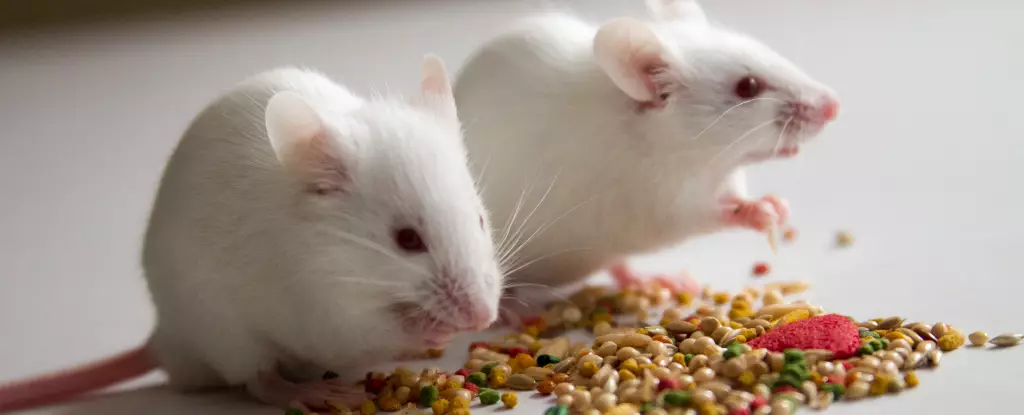Recent research has reignited interest in the age-old debate surrounding caloric restriction (CR) and its potential to increase lifespan. A significant study involving nearly 1,000 mice has provided compelling evidence on how reducing caloric intake can influence the body’s metabolism and overall health. While previous studies on various species support the notion that eating less can promote longevity, the implications for humans remain complex. This article delves into the findings of the aforementioned study, the nuances of caloric restriction, and their broader implications for human health.
Understanding the Study Design
The recent investigation assessed the effects of varying degrees of caloric restriction and intermittent fasting among genetically diverse female mice. The study confirmed long-held hypotheses that restricting food intake could correlate with increased lifespan. Remarkably, mice subjected to the most stringent caloric reduction lost about 25% of their body weight by 18 months of age. In contrast, the control group experienced a weight gain of over 25%. This weight disparity served as one indicator of the broader metabolic changes induced by dietary restrictions.
Measurement of lifespan enhancements was equally striking, with calorie-restricted mice living, on average, an additional nine months compared to their counterparts on a conventional diet. However, the results also underscore a critical point: not all mice benefited uniformly from reduced caloric intake. The study revealed a considerable variation in lifespans within the caloric restriction groups, leading to the necessity of examining other influencing factors.
While the average lifespan among calorie-restricted mice increased, the data revealed a nuanced story. A notable portion of the calorie-restricted group did not live significantly longer, and some even died at younger ages. This variability suggests that while caloric restriction might confer some benefits, it is not a one-size-fits-all strategy. Rather, genetic factors appeared to play a pivotal role in longevity; mice retaining higher weights or those with advantageous immune profiles lived longer, defying the expectation that weight loss directly correlates with increased lifespan.
The study also highlighted that certain mice, when subjected to stress, had a better chance of long-term survival if they maintained their weight. This paradox raises critical questions about how resilience and metabolic factors intertwine to influence lifespan, indicating that simple caloric restriction might not be enough; instead, comprehensive health, including genetic predispositions and immune strength, must be factored in.
The idea of intermittent fasting and reduced caloric intake is gradually permeating human dietary practices, largely due to claims of health benefits and potential longevity. Preliminary findings from studies involving humans resonate with the effects observed in animal models. Less severe caloric restrictions and intermittent fasting may help in reducing body fat and mitigating risks for various diseases.
Nevertheless, human biology is substantially more complex than that of test subjects like mice. Consequently, while the evidence is promising, the results should be interpreted with caution. There are ethical considerations regarding long-term caloric restriction studies in humans, which makes it challenging to draw definitive conclusions.
Ultimately, while caloric restriction may contribute to longer lifespans—supported by research across various species—the bigger picture emphasizes health quality over merely prolonging life. Promoting robust health throughout life is an essential goal. The intricacies of metabolism, genetics, and the body’s resilience to stress highlight that extending life is not solely about eating less. Rather, it involves a synergistic relationship between diet, genetics, and environmental factors.
As we continue to explore the effects of diet on our health, it is prudent to proceed with a balanced approach. Engaging in nutritional mindfulness and recognizing individual variability in response to dietary restrictions will be pivotal as we strive to attain not just more years, but more vitality in those years.


Leave a Reply